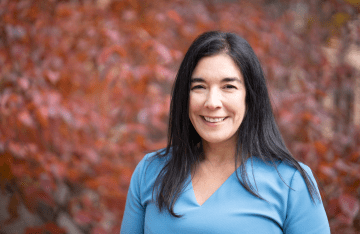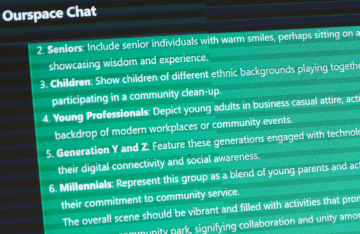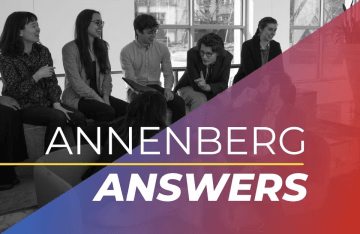Andrew Daniller Named 2017-19 George Gerbner Postdoctoral Fellow
Daniller researches the role of media in shaping citizens’ trust of democratic institutions and processes.
The Annenberg School for Communication has named a new George Gerbner Postdoctoral Fellow for 2017-19: Andrew Daniller.
Daniller, who will receive his Ph.D. from Annenberg this Spring, successfully defended his dissertation, entitled "Politics as Sport: The Effects of Partisan Media on Perceptions of Electoral Integrity," in December 2016. Prior to arriving at the Annenberg School, he completed his Master’s degree in Media and Public Affairs at the George Washington University and Bachelor’s degrees in Government & Politics and Economics at the University of Maryland.
Daniller’s research focuses on the role of media in shaping citizens’ trust of democratic institutions and processes. His dissertation research demonstrates that exposure to like-minded partisan media exacerbates the distrust of the electoral process typically felt by voters who supported a losing candidate or party. The reemergence of partisan media in the United States therefore appears to undermine support for elections themselves.
Daniller’s work has appeared in Nature, Electoral Studies, and Communication Methods and Measures. Additionally, he has been invited to present his research as a speaker in the Provost’s Year of Media program at the University of Pennsylvania and in the Beyond the Classroom series at the University of St. Thomas. Daniller was recently awarded the prize for top student paper in the annual competition conducted by the PA/NJ chapter of the American Association for Public Opinion Research. During the Spring 2017 semester, he is teaching Public Opinion and American Democracy at the University of Pennsylvania and Fundamentals of Communication and Media Studies at Fordham University.
As a Gerbner Fellow, Daniller will pursue a detailed content analysis of the ways in which television news and public affairs programs explain the results of elections to their viewers. He plans to combine the resulting analysis with his dissertation research to produce a book manuscript that thoroughly explores the ways in which partisan media shape citizens’ understanding of and trust in election results.



